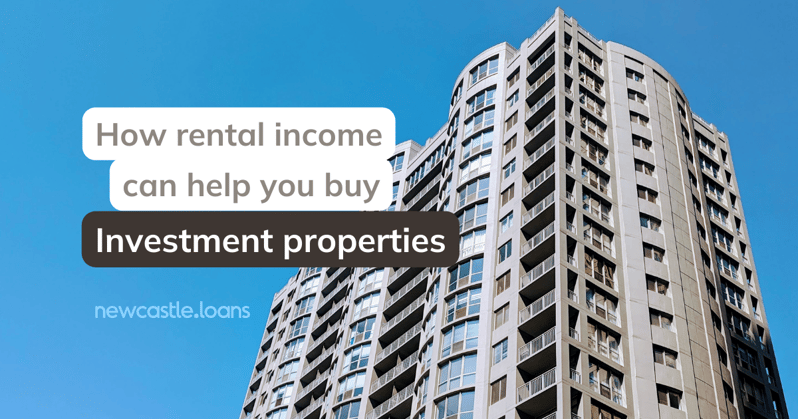How future rental income can help you buy an investment property

Contents
How to calculate rental income for an investment property
Lenders calculate qualifying rental income by taking 75% of the property's gross monthly rent into account, which accounts for potential vacancies and maintenance costs.
This adjusted figure helps determine how much of the rental income can be used to support your mortgage application.
Step-by-Step Calculation
1. Start with the Gross Monthly Rent
Obtain the estimated market rent from the property's appraisal report. This figure represents the expected monthly income if the property were rented under typical market conditions.
Example:If the appraiser estimates the market rent at $3,000 per month.
2. Apply the Vacancy and Maintenance Adjustment
Multiply the gross monthly rent by 25% to estimate potential losses due to vacancies and maintenance expenses.
Calculation:
$3,000 × 25% = $750
3. Determine the Adjusted Monthly Rent
Subtract the estimated vacancy and maintenance costs from the gross monthly rent to find the qualifying rental income.
Calculation:
$3,000 − $750 = $2,250
This $2,250 is the amount the lender will consider as income when evaluating your mortgage application.
Why Use 75%?
Lenders use 75% of the gross rental income to conservatively estimate the property's income potential, taking into account periods when the property may be vacant or require maintenance.
Understanding how rental income is calculated can help you determine whether an investment property is affordable and likely to provide a good financial return.
If you're considering purchasing an investment property, you should get pre-approved for a mortgage by a local lender like NewCastle Home Loans.
How rental income can help you buy an investment property
Rental income can offset your mortgage payment, reducing your debt-to-income (DTI) ratio and making it easier to qualify for a loan.
When you apply for a mortgage on an investment property, lenders consider both your income and your debts. By including a portion of the expected rental income, you can lower your DTI ratio, which is a key factor in loan approval.
Understanding the Impact
Lenders typically use 75% of the property's projected rental income to account for potential vacancies and maintenance costs. This adjusted rental income is then compared to your monthly mortgage payment, which includes principal, interest, taxes, and insurance (PITI).
-
Adjusted Rental Income: $2,250 (75% of $3,000 estimated rent)
-
Monthly Mortgage Payment (PITI): $3,000
-
Net Rental Loss: $2,250 - $3,000 = -$750
In this scenario, the $750 shortfall is considered additional debt in your DTI calculation. However, it's significantly less than the full mortgage payment, effectively reducing your DTI ratio and improving your chances of loan approval.
Key Takeaway
Using future rental income can make an investment property more affordable by lowering the debt burden considered in your mortgage application. This strategy enhances your purchasing power and can be a valuable tool in building your real estate portfolio.
Who can use rental income when qualifying for a mortgage?
You can use rental income to qualify for a mortgage if you have a current housing expense and at least one year of property management experience.
Current Housing Expense
Lenders require that you either own a home or pay rent to consider rental income in your mortgage application. This demonstrates your ability to manage ongoing housing payments.
-
If you live rent-free (e.g., with family), you typically cannot use future rental income to qualify.
Property Management Experience
Having at least one year of experience managing rental properties strengthens your application. This experience can be demonstrated through:
-
Tax returns showing rental income (Schedule E).
-
Lease agreements from properties you've managed.
Without this experience, lenders may limit the amount of rental income they consider.
Suppose your adjusted rental income is $2,250, and your monthly mortgage payment is $2,000:
$2,250 (Adjusted Rent) - $2,000 (Mortgage Payment) = $250 (Net Rental Income)
With the required experience, this $250 can be added to your qualifying income.
Summary
To use rental income when qualifying for a mortgage:
-
Maintain a current housing expense (owning or renting).
-
Have at least one year of property management experience.
Meeting these criteria can enhance your borrowing power by including rental income in your mortgage application.
Mortgage rules for rental income
The following sources outline the general rental income eligibility requirements for conventional conforming mortgages.
- How to calculate future rental income from a departing residence
- Down payment for investment properties
- Fannie Mae rental income
- Freddie Mac rental income
- Calculating rental income
- Rental income calculation worksheets




